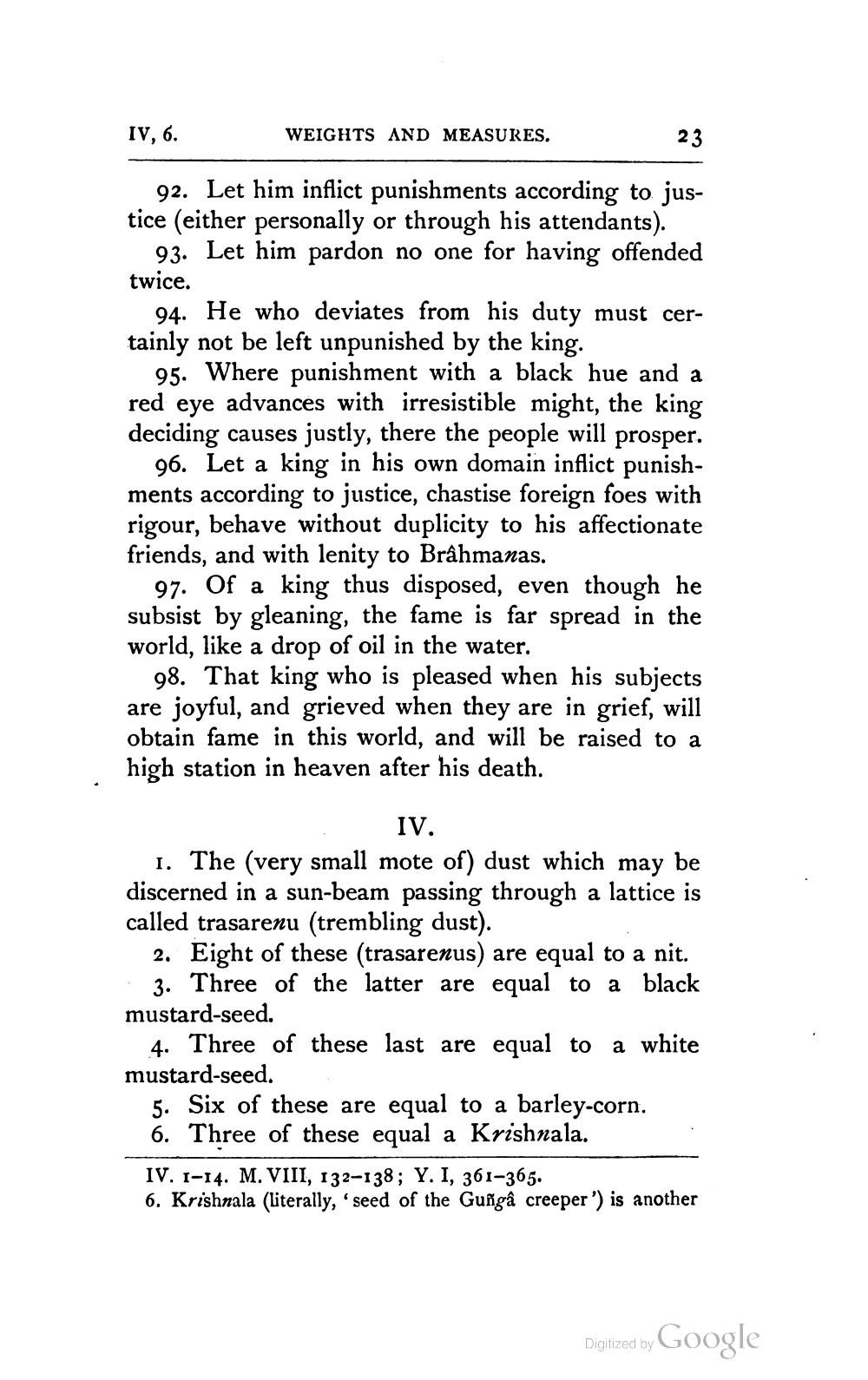________________
IV, 6.
WEIGHTS AND MEASURES.
23
92. Let him inflict punishments according to justice (either personally or through his attendants).
93. Let him pardon no one for having offended twice.
94. He who deviates from his duty must certainly not be left unpunished by the king.
95. Where punishment with a black hue and a red eye advances with irresistible might, the king deciding causes justly, there the people will prosper.
96. Let a king in his own domain inflict punishments according to justice, chastise foreign foes with rigour, behave without duplicity to his affectionate friends, and with lenity to Brâhmanas.
97. Of a king thus disposed, even though he subsist by gleaning, the fame is far spread in the world, like a drop of oil in the water.
98. That king who is pleased when his subjects are joyful, and grieved when they are in grief, will obtain fame in this world, and will be raised to a high station in heaven after his death.
IV.
1. The (very small mote of) dust which may be discerned in a sun-beam passing through a lattice is called trasarenu (trembling dust).
2. Eight of these (trasarenus) are equal to a nit.
3. Three of the latter are equal to a black mustard-seed.
4. Three of these last are equal to a white mustard-seed.
5. Six of these are equal to a barley-corn. 6. Three of these equal a Krishnala.
IV. 1-14. M. VIII, 132-138; Y. I, 361-365. 6. Krishnala (literally, seed of the Guñgâ creeper') is another
Digitized by Google




